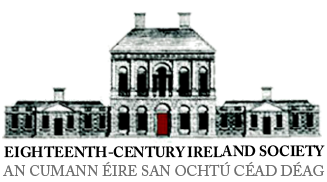Type: Article
Wheatley, Christopher J. ‘Heroic Palimpsest: Robert Ashtons The Battle of Aughrim’, Eighteenth-century Ireland/Iris an dá chultúr, Vol. 11 (1996), pp 53-73..
This article gives an account of Robert Ashtons play The Battle of Aughrim (1728), and its enduring appeal over a century and a half to both protestants and catholics. Based on the historic battle of 1691, the play is one of the most popular plays written in Ireland prior to the twentieth century, particularly amongst the lower classes who suffered most grievously from the consequences of the battle. Wheatley discusses themes of duality within the play, which represent feelings of identification and exile from both factions. Ashtons The Battle of Aughrim is both a celebration of the Williamite victory and a tragedy about the New English who are caught between a desire to be Irish and a loyalty to England. At the same time the play is a lament for catholic patriotism, influenced by Addisons Cato. According to Wheatley, the play is the first sympathetic treatment of recent catholic Irish history by the Anglo-Irish, and it rehabilitates the Irish by comparing them to defeated patriots of the Roman republic.
